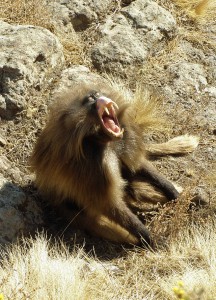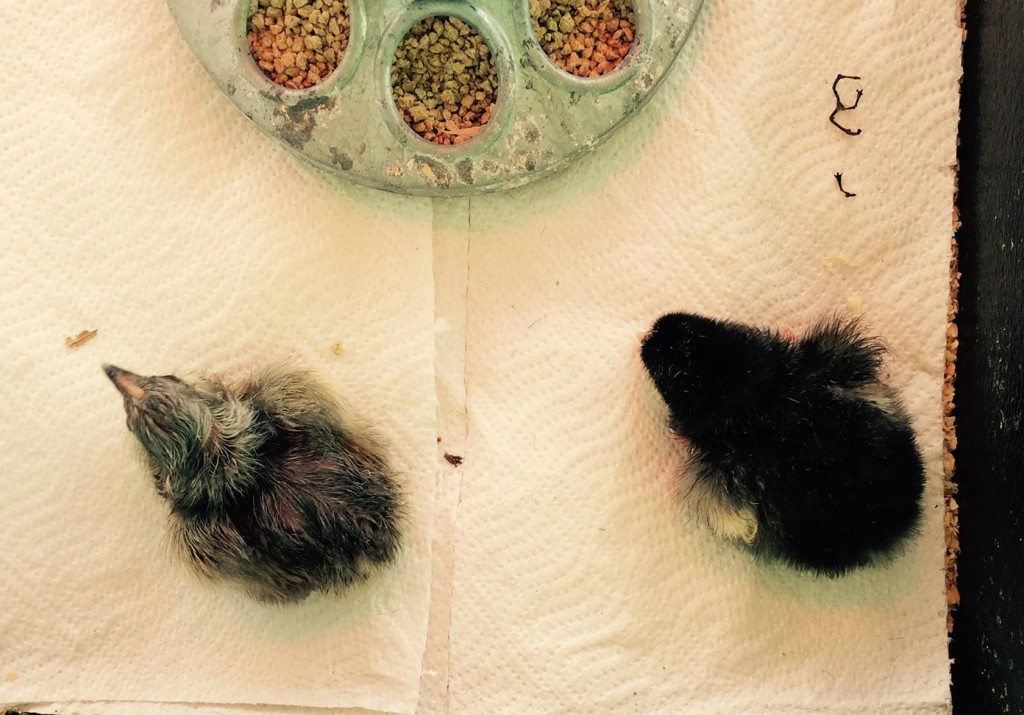The domestication of the dog was one of the pivotal moments in the development of human civilization.

Most likely, wolves gathered by human campfires after a hunt. The humans allowed the wolves to scavenge, which disposed of animal remains and may have served as a deterrent to other predators.
Both wolf and human gained from this uneasy peace, and in time the wolf, through selective breeding, became the working dogs we know today. Their ability to protect and control herds and aid man in hunting was absolutely central to our development. Man and wolf walked out of Eden side by side.
Are modern primates and wolves now doing something similar?
In the alpine grasslands of eastern Africa, Ethiopian wolves and gelada monkeys are giving peace a chance. The geladas – a type of baboon – tolerate wolves wandering right through the middle of their herds, while the wolves ignore potential meals of baby geladas in favour of rodents, which they can catch more easily when the monkeys are present.
The unusual pact echoes the way dogs began to be domesticated by humans, and was spotted by primatologist Vivek Venkataraman, at Dartmouth College in New Hampshire, during fieldwork at Guassa plateau in the highlands of north-central Ethiopia.
Even though the wolves occasionally prey on young sheep and goats, which are as big as young geladas, they do not normally attack the monkeys – and the geladas seem to know that, because they do not run away from the wolves.
“You can have a wolf and a gelada within a metre or two of each other and virtually ignoring each other for up to 2 hours at a time,” says Venkataraman. In contrast, the geladas flee immediately to cliffs for safety when they spot feral dogs, which approach aggressively and often prey on them.
When walking through a herd – which comprises many bands of monkeys grazing together in groups of 600 to 700 individuals – the wolves seem to take care to behave in a non-threatening way. They move slowly and calmly as they forage for rodents and avoid the zigzag running they use elsewhere, Venkataraman observed.
Both animals are altering standards patterns of behavior to improve their chances of survival.
Man’s relationship with dogs is the most profound and important connection humans ever developed with another species. There’s no reason to assume the evolutionary engine of civilization stopped 18,000 years ago. We may be witnessing some of the same mechanisms today.
UPDATED: Dennis Mahon sent me this link about baboons kidnapping and raising feral dogs. Amazing stuff.












